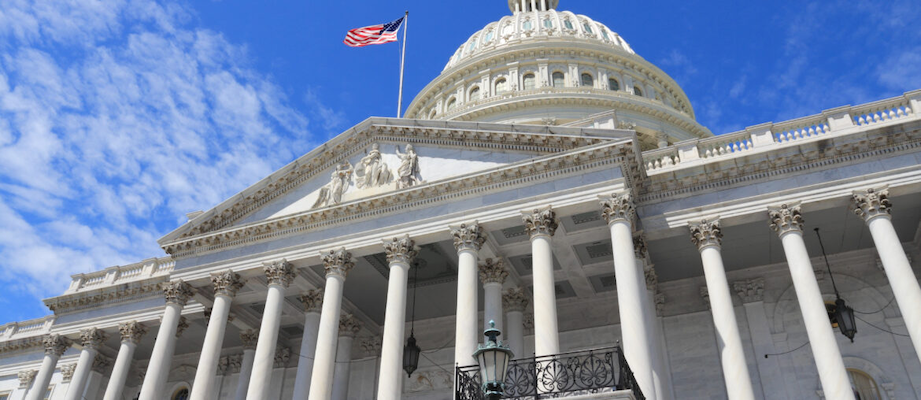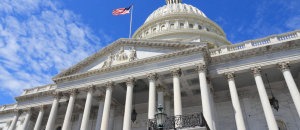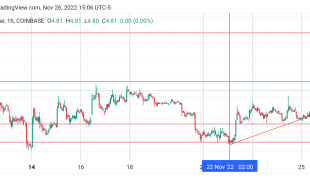Join Our Telegram channel to stay up to date on breaking news coverage
BILLIONS of dollars were recently taken out of the aggregate digital pockets of hundreds of thousands of investors. But in the dated marble halls of the US Capitol, crypto continues to reign supreme.
After the collapse of the cryptocurrency exchange FTX earlier this month, a few lawmakers are undoubtedly raising red flags, or at the very least are idly holding them. Congress is cool, calm, and collectively, well, stupid even if hundreds of millions of dollars’ worth of happiness, retirements, and even basic health insurance were destroyed in the blink of a bro’s crafty eye.
Bernie Sanders, a Vermont-based independent US senator who runs as a Democrat every four years, says, “It’s not really a topic I know a whole lot about.”
The tech-savvy Missouri Republican and US senator Josh Hawley admits, “I don’t really comprehend the technology.”
The leaders of the House Democrats appear to be working from the same (if outdated) script. US representative Hakeem Jeffries (D-New York), who is currently the chair of the House Democratic Caucus and is (presumably) going to be the leader of the House Democrats, is noncommittal when asked about strategies to deal with the unpredictable cryptocurrency market after FTX’s demise. “Well, I suppose the Financial Services Committee will address that matter”, he thinks.
Speaking with lawmakers, it seems that Congress is still debating the concept of “money” even though the majority of people have long since moved past the country’s representatives and are still clamoring for their money—whether it be digital or otherwise—back. And despite the recent crypto meltdown, Jeffries and many other influential party officials claim that there is still time to waste.
Jeffries continues, “There are a slew of concerns that, I think, we are intending on working through, and I can assume that the situation relating to the cryptocurrency business will be one of them moving forward.”
The right kind of regulation
The emergence of cryptocurrencies and the risks they pose, according to US senator Cynthia Lummis (R-Wyoming), took Congress off guard.
The digital asset market, according to Lummis, “may have been put on the back burner because it’s young”, according to many members of Congress. It’s expanding more quickly than most people realize. This industry is considerably more developed than people know, as evidenced by Elon Musk’s recent announcement that he may use Twitter as a payment mechanism. It’s now. Regulation must begin now. Sideboards need to be added to this.
Lummis is more than just a Republican. She represents Wyoming, which wants to be the US’s “crypto capital.” The House Freedom Caucus included her among its original members. She just shifted toward MAGA, much like the caucus, but her libertarian tendencies are still quite strong. For the laissez-faire Lummises of the world, cryptocurrency is the best thing since sliced bars of gold.
Despite the fact that Lummis is opposed to regulations, she has been vocal in advocating for them—“regulations”, even if that phrase is still frowned upon in most Republican circles. At the very least, bumpers are what she wants.
The most crucial factor is separating the assets of the customers from those of the financial institution, according to Lummis. “There will still be companies that deal in digital assets that will fail even after they are regulated, but at least we’ll have consumer protections and reporting”, she says. The issue with FTX was that they were lending out the assets of their clients.
A thorough regulatory framework for digital assets was promised by the libertarian Lummis and liberal US senator Kirsten Gillibrand (D-New York) in the Responsible Financial Innovation Act, which they jointly abandoned this summer.
By establishing a distinction between securities and commodities, for example, it aims to give the Commodity Futures Trading Commission (CFTC) additional authority to control cryptocurrencies. Additionally, it would create an advisory council to assist legislators and regulators in streamlining this constantly changing and bewildering new world of digital currency.
According to Gillibrand, “The industry wants regulation because they want to be able to distinguish the wheat from the chaff.” They want to be able to ensure that fraudulent individuals are barred from the market.
While both parties have called for overturning American digital standards, Congress has hesitated and failed to establish a comprehensive law protecting Americans’ digital assets, including our private secrets, like, say, our reproductive decisions. The Senate only recently discovered that the most well-known apps, including Facebook and YouTube, rely on ad revenue to stay afloat. Some members of Congress still use flip phones—I’m looking at you, Chuck Schumer. Given the prevalence of anti-regulatory forces on both sides, from Donald Trump’s left to Bernie Sanders’ right, this is probably why there isn’t a crypto Congress.
Senator from the United States Rand Paul adds, “It’s a highly turbulent market. I believe that most investors are aware of that.” One of the few US senators who is actually knowledgeable about cryptocurrency is the Kentucky Republican, who is skeptical of government regulation.
“Some things that could have happened there but haven’t yet intrigue me still. Paul continues, “I believe stable coins—where there is a real backing to the coin—might have a place in the future as an alternative to credit cards and as a means of exchange and transaction. “The government usually makes things worse by trying to regulate everything, which doesn’t work very well.”
Others are skeptical, while some MPs are bullish on cryptocurrencies.
“Crypto riches are false advertising. Built on a lot of insider trading and corruption”, says Massachusetts senator Elizabeth Warren. “Regulation has been needed for a very long time, but Congress has been unable to do action.”
According to Warren, we require “complete law that is not drafted by the government itself. It is crucial that the authorities have the resources necessary to prevent other forms of fraud and deception in addition to the one that just occurred in FTX.”
White people and Black people are the issue, according to US Senator Cory Booker (D-New Jersey). Black individuals and those without college degrees are overrepresented in the cryptocurrency industry, according to Booker. Like Lummis, the Democrat approaches it from the perspective of the consumer. However, Wyoming is not New Jersey. But ultimately, it doesn’t matter where you are. Anybody can invest anywhere in cryptocurrencies, but anybody can also lose everything doing so. With American banks, that is not conceivable, which is why these lawmakers are asking for a minimum.
Lummis states, “We need to have a base. There must be a floor, and then, over time, if things become overly controlled and we are losing innovation as a result, we can cross that bridge when we come to it”.
Related
- Regulation is on the way, and crypto will be all the better for it
- Cryptocurrency Regulation: Is It A Security?
- Coming Crypto Regulation: What tokens might be impacted
Join Our Telegram channel to stay up to date on breaking news coverage


